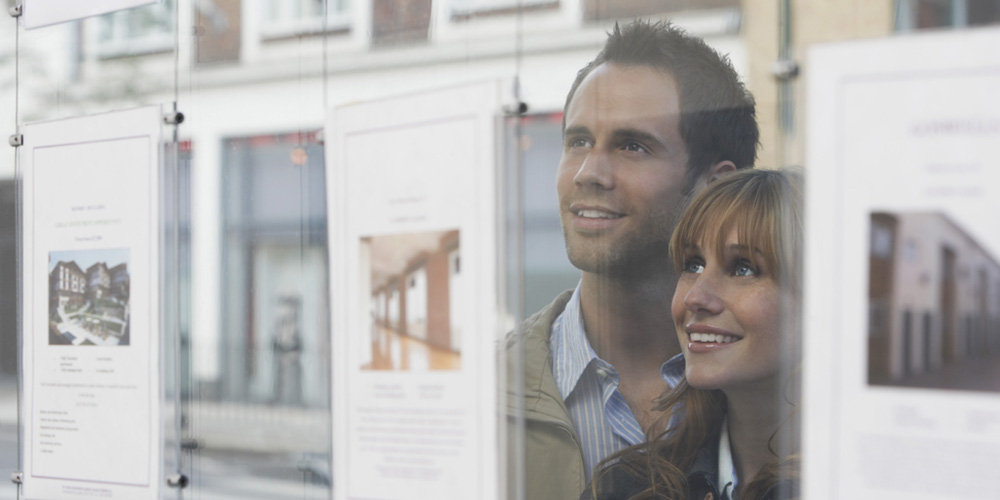
House prices increased by an average 33.7% in the last decade and despite being relatively flat over the last couple of years, due to the uncertainties surrounding Brexit, are set to rise by a further 15.3%, according to latest predictions, in the next 5 years. However, there are likely to be significant regional differences with properties in the North of England expected to see the strongest price growth of 24% between 2020 and 2024. Central London properties are also set for a rebound with predictions of 20% growth and only 5% growth in Greater London.
According to Rightmove, the property market will increase by 2% in 2020. But that a lack of supply, with demand remaining high, could push prices higher. Added to which, low interest rates, lenders competing to lend, high unemployment and a continued growth in wages, helps buyer affordability.
So, if you are planning on buying or renting a property in 2020, how will this impact you?
- House prices are forecast to grow by 2% in 2020, but stocks are expected to remain low. So, if you are thinking of buying, now is the time to get your property on the market, so that you're ready to move when the right property comes along. If you're renting, the number of letting properties are likely to remain low, which could prompt an increase in prices.
- First-time buyers. Schemes such as The Lifetime ISA, will help people raise the deposit required to buy a property. Which typically can be up to 20%. The good news is that interest rates are expected to remain low, which will make mortgages more affordable.
- Brexit. After the UK leaves the European Union on January the 31st, there will be some uncertainty surrounding the housing market. Currently confidence levels are high, so the 'Boris effect' may help property prices remain buoyant. A weak pound however, could encourage more overseas investors entering the market as this makes UK property relatively inexpensive.

Think you need to avoid selling your property over Christmas? Think again. Potential buyers have more time over Christmas and, according to Rightmove, the Christmas period and particularly Boxing Day, is one of the busiest of the year, with people searching for a new home.
So, what do you need to do to maximise a potential sale over Christmas?
- Make sure your property is visible online and listed with all the major property portals.
- Winter viewings. There's something quite special about a property dressed with Christmas decorations. Stepping into a warm house, with the light of a fire and twinkling lights can show off a property at its best. Helping prospective buyers visualise living there.
- Serious buyers. People house hunting over Christmas are more likely to want to complete early in the New Year. You'll get a greater proportion of motivated buyers, looking to agree a sale.
- Plan ahead. Don't leave putting your property on the market too close to Christmas. Whilst your home will look attractive with Christmas decorations, you want to ensure the photos of your property are taken before the decorations are put up.
- Ready for the New Year. Once Christmas is out of the way, there is a traditional New Year rush, as families make the decision to move over the Christmas period. Getting your property listed before Christmas ensure you are ready to make the best of this busy time of year.
If you need advice about selling over Christmas, contact us today.

If you're thinking about buying a new home, you'll need to budget for more than just the deposit. It's a stressful time, saving! You work hard to put away savings each month and feel like celebrating when you have saved enough for that all important deposit. But don't get carried away too early, as there are other costs that you need to take into account!
When you're working out your 'buying a house' budget, you also need to take account of the cost of buying, your mortgage fees and moving costs – on top of your deposit. It all adds up and can easily plunge you into debt if an unexpected bill hasn't been taken into account.
Here's what you need to know about and budget for:
- Mortgage fees. On top of your deposit you need to take account of the charges that your mortgage provider will require as part of the application process. These can vary from a few hundred pounds to several thousand pounds. Shop around to get the best possible deal. Also bear in mind that an electronic transfer fee is often applicable when the mortgage is paid out. This is often in the region of £50.
- Surveyors fees. You may view this as a necessary evil in order to comply with your mortgage, but having a professional survey could save you thousands in the longer run. A basic survey could be as little as £250 to £300, but really amounts to little more than a valuation. Paying extra for a homebuyers report, or even a full structural survey, could identify issues that enables you to renegotiate the price or save you money and headaches in the longer term.
- Legal fees. You will need a solicitor to carry out the legal searches on your property; to identify if a new motorway is likely to be built alongside your new property, for example. Fees for these are typically less than £250. Whilst the paperwork for the purchase of your property could cost £1000 to £1500.
- Stamp duty. Depending upon the purchase price of your property you will need to pay stamp duty to the Government. If you are a first time buyer you won't pay stamp duty on the first £300,000. Whilst you are only exempt from paying stamp duty on the first £125,000 if you are not a first time buyer.
Rate
Charge Band
0%
Up to £125,000
First-time buyers: first £300,000 for property up to £500,000
2%
Over £125,000 to £250,000
5%
Over £250,000 to £925,000
10%
Over £925,000 to £1,500,000
12%
Over £1,500,000
- Estate Agent fees. You only pay estate agent fees of you are selling a property. So if you are a first time buyer, you shouldn't need to budget for Estate Agent fees. If you are selling, the fees are typically one to three per cent of the final sales price. With VAT usually chargeable on top of that.
- Moving costs. Unless you are prepared to rent a van and move yourself, you will need to budget for a professional removal company to move your possessions. Fees are typically £400 to £600.
- Decorations and refurbishment costs. It's worth being clear exactly what is included within the sale. If you need to buy carpets, curtains, curtain rails and more, these can quickly eat into your budget. Even a fresh lick of paint can add up. And that's before any more extensive refurbishments that may be required. Where possible get quotes up front, so you know what costs will be applicable after you've purchased the property.
- Rates. And finally, make sure you know what rates are payable (to your Local Authority) for the property that you are purchasing. As this can often be another overlooked cost.
Elevating the Elmbridge property market
Visit us in Molesey
East Molesey
Surrey
KT8 9ER
VISIT US IN ESHER
Claygate
Esher
Surrey
KT10 0PD


